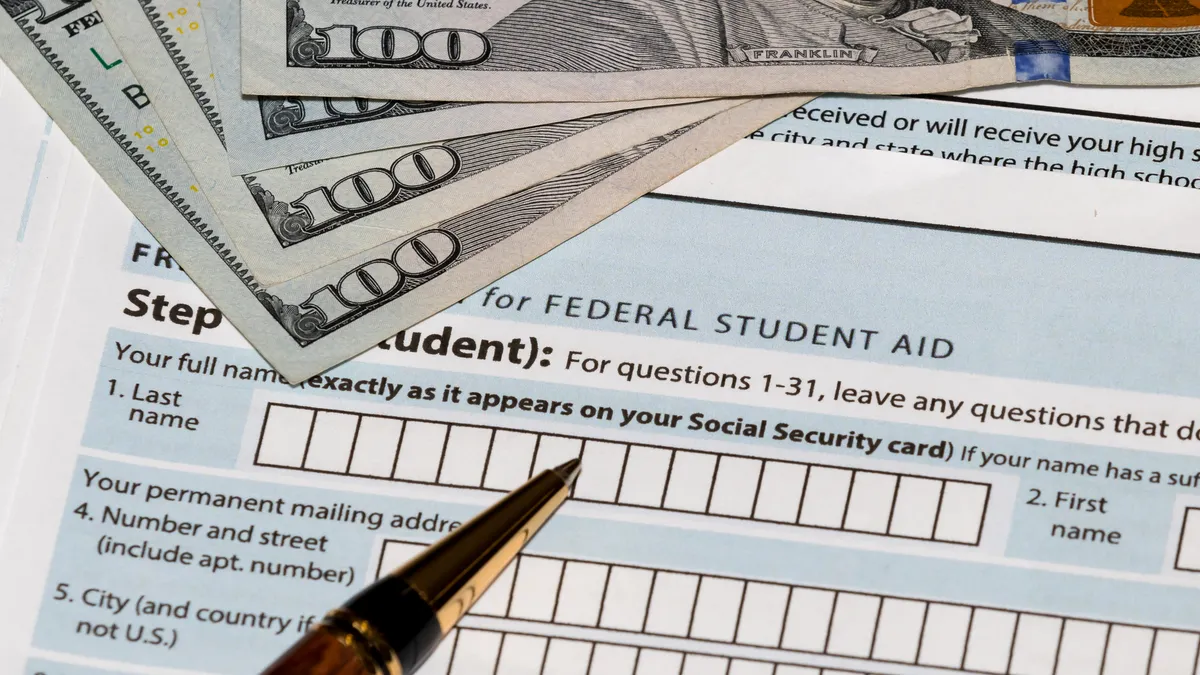Dive Brief:
- The U.S. Department of Education plans to issue the new iteration of the Free Application for Federal Student Aid, or FAFSA, by the end of December, likely further stressing colleges that will need to make awards on a truncated timeline.
- The agency announced the new schedule Wednesday. Up to this point, the Education Department had said the new FAFSA would debut in December, but did not specify a date. The agency now says it will begin processing online FAFSA submissions in January and paper versions of the form in February. The Education Department did not identify when during those months the process would start.
- The National Association of Student Financial Aid Administrators, or NASFAA, on Wednesday bemoaned the timetable, which it said is “slowing the delivery of financial aid offers to some students even further, and making this already difficult enrollment year even more fraught with challenges.”
Dive Insight:
In 2020, Congress passed a law authorizing a simplification of the FAFSA, which was a notoriously lengthy and unwieldy form for families and students to complete. The changes were in part intended to make the form more accessible to historically marginalized students who face the tallest barriers to reaching college.
However, redesigning the FAFSA has caused multiple delays. A December FAFSA release will be three months later than has been typical in recent years. This has stressed colleges’ financial aid departments, which are now operating on shortened timelines and trying to relearn a federal document that has not seen a major redesign in 40 years.
The new FAFSA reduces the number of questions from 108 to 36.
Justin Draeger, NASFAA president, said in a statement Wednesday that any significant delay in the FAFSA will leave “the most vulnerable student populations in limbo.” Low-income students often rely on financial aid packages to determine which college they can afford to attend.
“We urge our federal partners to do all they can to provide applicant data to institutions as quickly as possible, and to clearly communicate with schools as soon as updates are available,” Draeger said.
The Education Department said the FAFSA changes, which also expand federal Pell Grant eligibility for some students, will result in 610,000 new low-income students receiving the grants.
It estimated 1.5 million more students will be eligible for the maximum Pell Grant, which for the 2023–24 award year is $7,395. More than 5.2 million students will qualify for the maximum.
“When students and families fill out the better FAFSA form, they will find that applying for college financial aid is simpler, easier, and faster than ever before,” U.S. Education Secretary Miguel Cardona said in a statement Wednesday.















